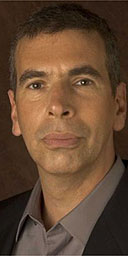A “tsunami” of poor quality research is fuelling misinformation and could undermine trust in science, the winner of the prestigious John Maddox prize has warned.
Elisabeth Bik, a Dutch microbiologist turned science sleuth who on Wednesday evening won the John Maddox prize for standing up for science in the face of harassment, intimidation and lawsuits, said the intense pressure to publish papers is leading to a “dilution” of the quality of scientific literature.
This risks flawed work being “amplified by bad actors” such as those seeking to stoke fears about vaccination.
“The danger with social media is that even a mediocre or bad or flawed paper can be taken by people who have different agendas and brought into the spotlight and celebrated as the new truth,” Bik said. “That is a new danger that has not been there before.”
She cited a recently retracted paper linking the HPV vaccine to female infertility and another that appeared to overstate the risk of myocarditis from Covid vaccines.
Bik has been recognised for her work exposing problems including image doctoring, plagiarism, data manipulation and unsound methodology.
She took up the campaign after discovering her own work had been plagiarised in 2013, and in 2019 left her job at a biotech firm to pursue the issue full time, funding her work through a Patreon account.
After raising serious concerns about claims that hydroxychloroquine was effective in treating Covid infections, Bik faced online harassment and threats of violence. Larger trials found no evidence to support the use of hydroxychloroquine to treat Covid patients.
The controversial French professor behind the work, Didier Raoult, threatened legal action against her, which she described as “scary and intimidating”.
In general, Bik said, the intense demand for solutions to the global pandemic has created a new pressure for scientists to deliver breakthroughs.
“A lot of scientists wanted to become the big saviour of the pandemic,” she said. “That brought a lot of fraud or just even poorly executed research. People want to become a hero and might go to great lengths to achieve that.”
This vision of the heroic scientist sits in contrast to the reality of life in the laboratory, Bik said. “Ninety percent of your results will be failures, every now and again you’ll get a success … but most of the time it’s sad and boring to be in the lab,” she said. “You can work really hard in science and still not get the results everyone hoped for. You have to be able to deal with that.”
Through her Science Integrity Digest, Bik encourages the public and other scientists to learn how to spot manipulated data. Her work has led to the retraction of around 600 papers and she derives “some satisfaction” from setting the record straight. But she has a spreadsheet of nearly 5,000 papers that she has reported as problematic and says the overall response from scientific publishers has been disappointing.
“We [scientists] write the papers for free, we peer review them for free and then still we have to pay the publisher $4,000 to get our paper published,” she said. “Where does that money go to? It seems a lot of people sitting in shiny offices, bosses of bosses of bosses, people who don’t seem to be doing something directly to my paper. It’s hard to justify.”
Bik said that winning the prize was a “great honour and delight”. The prizes are awarded jointly by the charity Sense about Science and the journal Nature, where John Maddox was a former editor.
Tracey Brown, the director of Sense about Science, said: “The shocking thing about what Elisabeth is doing in challenging fraud and misrepresentation of scientific findings is that this is something that most people think already happens. Only it doesn’t. And in fact she has been unique and often alone in sounding the alarm. The judges were struck by her unstinting determination.”
A second John Maddox prize for an early career researcher was awarded to Mohammad Sharif Razai, a GP and researcher at St George’s, University of London, for bringing an evidence-based understanding of racial health inequalities to bear in public and policy debates. Razai’s work has covered vaccine hesitancy among ethnic minority groups and systemic racism as a cause of adverse health outcomes.











